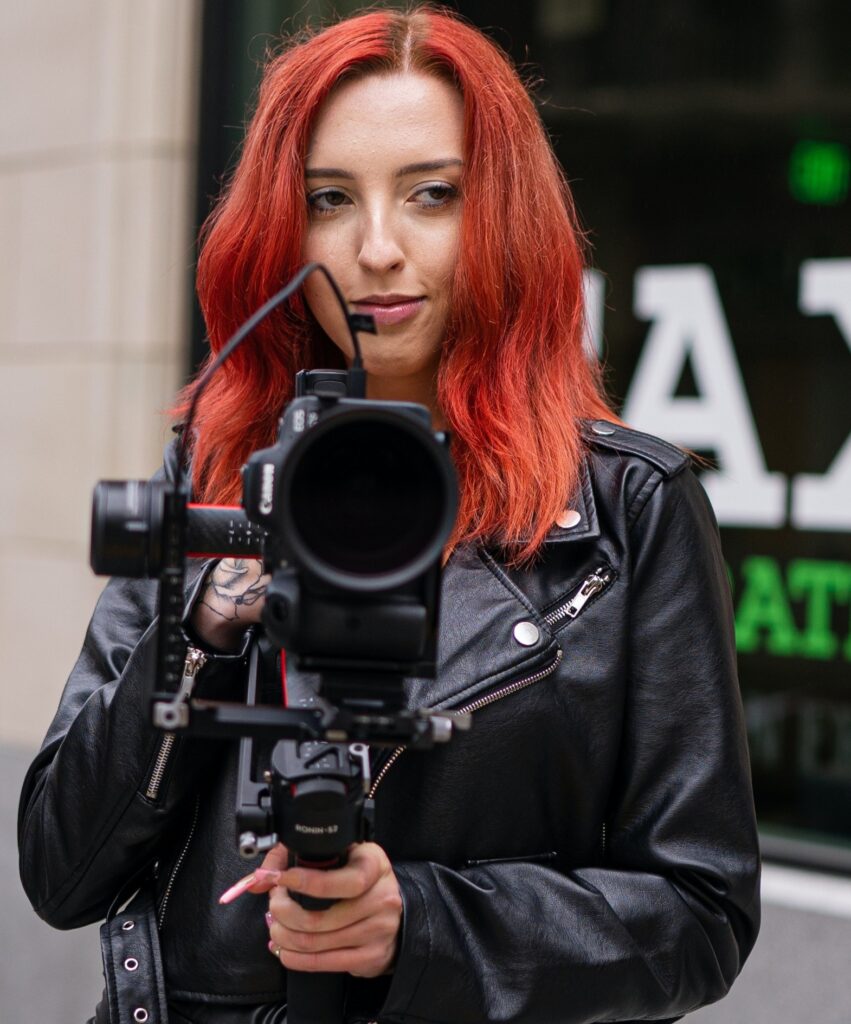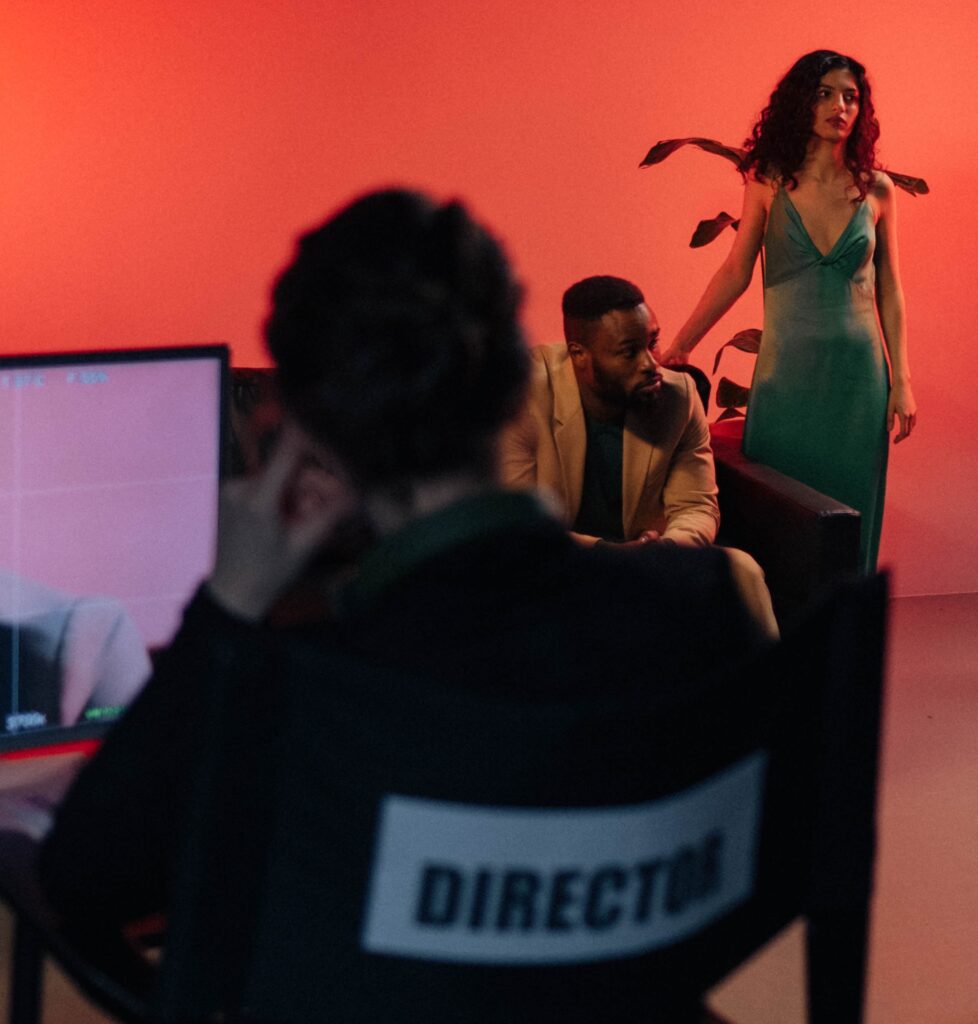Directors on tenterhooks in anticipation of the next big movie
- You get these odd women that push through and everyone’s waiting for them to fail.
- A comedy film that was not supposed to be taken too seriously, receiving backlash before it was even released didn’t stand a chance
- Most of these directors are still serious contenders in the film industry today
It’s 1993 and the cinema screen is packed out with people eagerly anticipating the start of the latest blockbuster film by a promising director.
All around, there is a general buzz of anticipation silenced only by the first few bars of music, introducing the story and the room going dark.
Before you are even aware, a dinosaur has walked onto the screen as you hear the words, ‘Welcome to Jurassic Park.’

Steven Spielberg
The moving picture has the entire audience on tenterhooks, with the visual effects and editing showcased far ahead of its time.
By the end of the film when the screen flashes up with the director’s name. No one is surprised it is Steven Spielberg, a filmmaker who has already been proficient in his career so far, building a successful film portfolio.
Had Jurassic Park been directed by a woman, would the reactions have been different? The answer to that question is not clear, but we can make a good guess of what the outcome would be.
The main reason is that there is a historical view that women should not be allowed to direct as it is a man’s job.

So maybe instead of anticipation and applause, there would have been jeers or boos that the film was put together by a woman.
Female director
“There has been a rather sneering view toward some female directors, Nancy Meyers, for example and especially some female-orientated genres,” says Helen O’ Hara, freelance film critic, known primarily for her work on Empire film magazine.
She explains how some works by women are received, based purely on assumption rather than reason.
“I know of Oscar voters who didn’t get around to watching the film adaptation of Little Women, primarily because they assumed the title wasn’t for them.”
So, why do reactions matter? Why is it important that Greta Gerwig, an American actress, director and screenwriter gets the recognition she deserves for Little Women like Steven Spielberg got for West Side Story?
The better a director’s film is received, the more likely they are to be given a chance to direct something else.
As a household film name, Steven Spielberg will be given any chance he wants to make a movie, even if a film he makes slumps, because he is a man and he was part of the New Hollywood era.
The New Hollywood era was where the cinema people know and love today really took shape, built up by a myriad of male directors who are credited with some of the most famous and well loved films on screen today, from Star Wars, Indiana Jones, Back to the Future, and many more.
Most of these directors are still serious contenders in the film industry today.
While this generation of young filmmakers briefly changed the business from producer-driven Hollywood of the past, and were credited with putting an end to the Hays Code, the future of cinema seemed to be shaped by men with no questions asked, as the audiences in cinemas hungered for something new and exciting, not caring where it came from.
While the New Hollywood era lasted under two decades, it had a substantial impact on how Hollywood operated.
‘You get these odd women that push through and everyone’s waiting for them to fail’
Chloe Leeson
When it comes to reactions and comparisons, maybe the best way to demonstrate the discrepancies in Hollywood between male and female directors is using the comedy classic, Ghostbusters.
Female and LGBTQ filmmakers
The original film was released in 1984, directed and produced by Ivan Reitman and written by Dan Aykroyd and Harold Ramis and stars Bill Murray along with the film’s two writers, Ackroyd and Ramis.
The critical response to this comedic supernatural film was generally positive, Roger Ebert, a film critic for the Chicago Sun Times, claiming it was a rare example of successfully combining a special effects driven blockbuster with ‘sly’ dialogue.
Christopher Hicks, of Deseret News, even praised Reitman’s improved directing skills, proof that one bad film for a male director does not destroy their career.
An essential part of Hollywood right now is the production of sequels to familiar favourites, such as Star Wars, Avatar, Indiana Jones and Top Gun.
Ghostbusters was no exception, releasing a sequel, initially marketed as ‘Ghostbusters: Answer the Call’ in 2016, starring an all-female group of new ghost hunters.
The announcement of the female-led cast in 2015 drew mixed reviews and an internet backlash, leading to the films IMDb page and YouTube videos receiving low ratings before the film’s release.
Screen Queens is an organisation that aims to promote female and LGBTQ+ filmmakers and critics. Chloe Leeson, a freelance writer and head of Screen Queens, when discussing the Ghostbusters remake, explained: “I actually thought it (the film) was fine, I thought Kate McKinnon was really funny and people went crazy. It was also men and a nostalgia thing.”
A comedy film that was not supposed to be taken too seriously, receiving backlash before it was even released didn’t stand a chance.
People have already made the assumption that, because the cast was led by women, that the film wouldn’t be any good.
There is however, a key thing to take away from this example. Paul Feig, the director of the film was given more chances to direct and make more films.
He had again, established a career for himself and investors knew that assuming he could bounce back from the downfall of Ghostbusters, he would continue to provide for the entertainment industry.
‘You get these odd women that push through and everyone’s waiting for them to fail.’
Chloe Leeson
If that had been a female director who may have been given the chance to make the remake based on the premise that it’s a sequel, with maybe no other film credits to her name, her career would have been destroyed.
“Women can make one bad movie and then be done for,” Chloe Leeson explains. “You get these odd women that push through and everyone’s waiting for them to fail.”
Now, Hollywood never stays the same. With all the pushes for equality, diversity and inclusion in the 21st century, things have to change or Hollywood could face serious fallout in the years to come.




